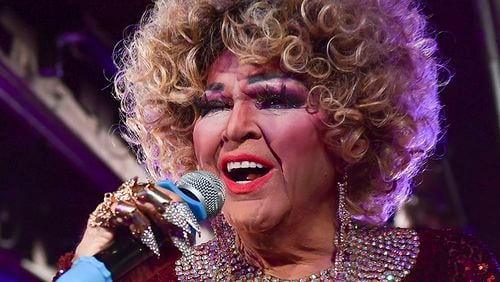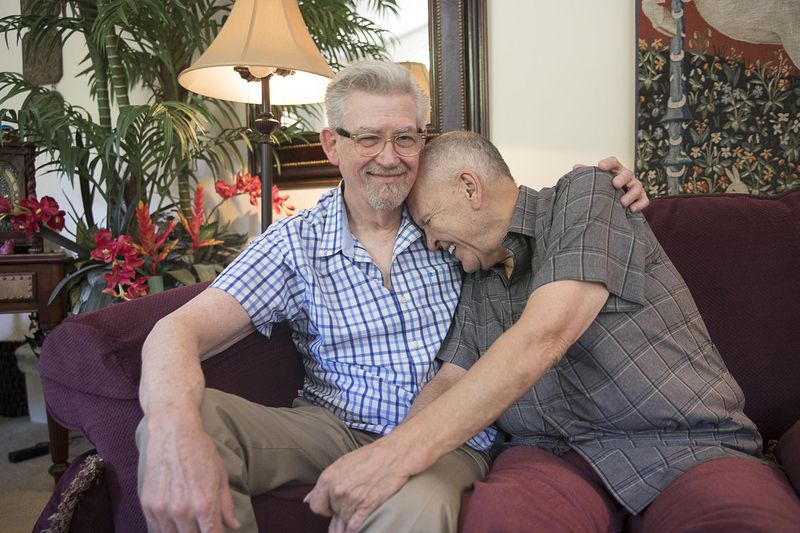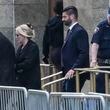Wherever iconic Atlanta drag queen Mr. Charlie Brown performed, his loyal fans followed, reveling in his persona of a snarky, hilarious woman with an attitude.
At home in Austell with his husband Fred Wise, Charlie was a kind, empathetic friend who loved gardening and cooking.
“People were sometimes amazed when I told them I was friends with Charlie,” said Jim Marx, who performs in drag as Bubba D. Licious. “He had a huge heart that cared about everybody.”
Christened Charles H. Dillard, Mr. Charlie Brown died March 21 of sepsis in Piedmont Hospital after undergoing heart valve replacement surgery. Brown was 74 and had been doing drag for half a century.
Born in tiny Siloam, Tennessee, to Charlie and Velma Dillard, “Charlie used to say, ‘We were envious of towns that had a stoplight,’” said writer Richard Eldredge. He collaborated with Brown on a memoir, “Bitch of the South: How I Survived Vietnam, the AIDS Crisis and MAGA Drag Bans.”
Credit: TNS
Credit: TNS
Dillard was nicknamed “Charlie Brown” while working, rather ineptly, as the night clerk in a downtown Nashville hotel. Brown’s supervisor saw the disarray of the front desk and said, “(expletive) you, Charlie Brown!” according to Eldredge.
He got his performing start 50 years ago at Nashville’s Watch Your Hat and Coat Saloon. The “mister” in Mr. Charlie Brown was tacked on because a Nashville ordinance required “every female impersonator to let the audience know they were men.”
In the 1970s, drag artists in Nashville had to smuggle their wigs and dresses into the clubs in trash bags. If they arrived at work in full makeup, bullies “would chase ‘em down the street,” Brown told The Atlanta Journal-Constitution in 2023.
Dillard arrived in Atlanta in the mid-1970s. One night at the Sweet Gum Head, a gay bar on Cheshire Bridge Road, Mr. Charlie Brown climbed on the circular bar and did a spirited Vegas-like routine, lip syncing to Della Reese’s “You’ve Come a Long Way from St. Louis,” and kicking over people’s drinks. When Brown finished, the owner came storming up, but to Brown’s astonishment, he offered him a job. Brown worked there as a performer and emcee until it closed.
Brown worked at other Atlanta nightspots, including Illusions and Lips, but may be best known for the 14 years he oversaw Charlie Brown’s Cabaret, a rooftop drag show at Backstreet, a 24-hour gay disco in Atlanta. Audience members at time included Queen Latifah, Elton John and Janet Jackson.
In addition to performing, in the 1970s and ‘80s Brown raised money for AIDS Atlanta, Project Open Hand, Jerusalem House “and other AIDS service organizations,” says Marx, who worked with him. “We had so many friends dying, we had to get involved,” Marx said. He estimates that he helped raise $4.5 million and said Brown did the same.
When Brown traveled to gay clubs across the South, Marx would guest-host at Backstreet for him. Brown’s generosity was well known in the drag community — Marx said “she helped pave the way for me and so many others because we got our start as the junior cast at Backstreet. If Charlie referred you somewhere, you were going to get a job.”
In the early 1980s, Eldredge said, Atlanta Pride wanted a sanitized version of gay people, a parade that didn’t include the leather community or the drag community. In spite of those efforts, in 1981, Mr. Charlie Brown marched in the parade in drag, complete with high heels, alongside the group Texas Drilling Company, which was outfitted in leather. Later, he was asked to serve as grand marshal of the Atlanta Pride parade. In 2022, Atlanta Mayor Andre Dickens presented Brown with the Phoenix Award, the city’s highest civilian honor, for his long performing career and charity work.
Though his grandfather had been a Baptist missionary and his mother a devout woman, Brown wasn’t a member of a church congregation. But he did believe in a higher power and told Eldredge, “I learned at an early age you don’t get to choose your roads in life. God chose me to be a gay man from a small town whose greatest joy is making people laugh.”
Brown is survived by Fred Wise, his husband and partner of 45 years, nieces Kendra Templeton and Terri Holder, nephew Tracy Dillard, three great-nephews and two great-nieces.
Arrangements for a memorial service will be detailed on Brown’s Facebook page.







